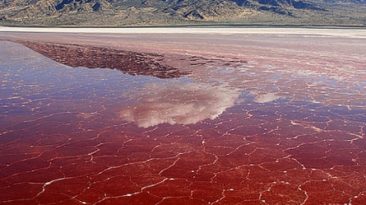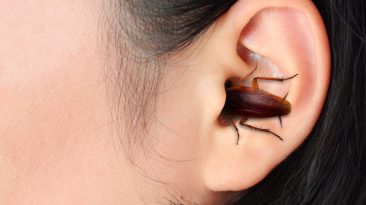A blue whale’s blowhole is so large that a baby could fit inside it. Thankfully, no babies are stuck in whales in this episode… but you are. How powerfully can a whale exhale?
What would happen to the whale? Would you be able to escape?
Like you and me, whales have lungs. They don’t have gills though, so they can’t breathe underwater. But unlike us, whales can hold their breath for a long time. They can be underwater for up to 30 minutes. And deep-diving whales, like sperm whales, can survive for over an hour without coming up for air.
But eventually, they all have to come to the surface for air, which they suck in using their large blowholes. It’s during one of these moments that, somehow, you find your foot getting stuck in a massive blowhole. This is bad news for you and the whale.
You can think of blowholes as nostrils on top of a whale’s head. But they’re much more powerful than human nostrils. After each breath, strong muscles seal the blowhole shut to keep water from entering the whale’s lungs.
When whales exhale, they shoot out 90% of their old air. And since you only exhale 12-18% of your old air after each breath, 90% is a lot of air to release in a single moment.
It’s so much air that one exhalation from a while can travel at speeds up to 482 km/h (300 mph) and reach 9 m (30 ft) into the air. That is one big sigh.
Whales that have teeth and are active hunters, known as toothed whales, only have one blowhole. But baleen whales, which don’t have teeth and feed on krill, usually have two blowholes because they’re larger and need more oxygen.
It’s one of these larger whales that your foot is stuck in. How would that feel?
It would be painful. And the strong blowhole muscles would make it extremely difficult for you to get your foot out. You’d still be struggling as the whale submerges and water surges over your head. Can you hold your breath for as long as a whale? I didn’t think so.
If the whale doesn’t dive, then you’d have a chance to get free. Typically, whales take one to two breaths per minute when they’re swimming at the surface. You’d be able to gulp in some oxygen every time the whale came up for air.
Your best chance to free yourself would be when the whale exhales. The opening of the blowhole, combined with the violent exhale of air and microbes, could be just enough to propel you to freedom.
And the whale would be happy to see you go. Some whales are very conscious of their blowholes, and don’t like anything touching them. Whales can’t breathe through their mouths. And even with a second blowhole to breathe with, the whale wouldn’t be getting enough oxygen for its massive body.
And with your leg obstructing a blowhole, water would leak into the whale’s lungs. If you didn’t get your foot out of the whale’s blowhole, both of you would die from suffocation. Luckily, you have a bigger chance of being swallowed by a whale than getting sucked into its blowhole. Or, maybe that’s not so lucky.
Sources
- “Whale Facts And Information”. 2021. Animals.
- “Blowhole – Whale Anatomy – Enchantedlearning.Com”. 2021. enchantedlearning.com.
- “Blowhole, What Are They And What Are They Used For? – Explore”. 2020. Cimi Outdoor – Guided Discoveries.
- “How Do Whales And Dolphins Breathe? – Whale And Dolphin Conservation”. 2021. Whale & Dolphin Conservation UK.
- “How Does A Whale Use Its Blowhole?”. Stevenson, Andrew. 2021. whalesbermuda.com.



























